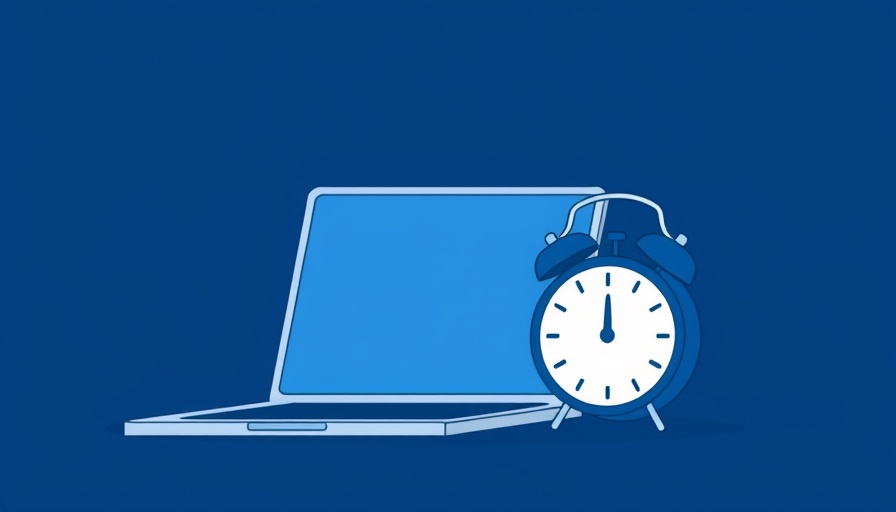
The Rise of Daytime Napping: A New Norm for Remote Workers
Napping at work might seem like a luxury reserved for the fortunate, but for many remote workers, it has become an integral part of their workday. With almost half of today’s employees taking naps during the day, it raises questions about productivity, stress reduction, and overall workplace satisfaction. The findings from a recent survey of 1,002 remote workers shed light on how this trend has developed and what it signifies for families navigating the world of remote work.
How Frequent Are Naps Among Remote Workers?
The data reveals that 48% of remote workers readily admit to firing up their napping skills during work hours, an average of 1.3 hours per week. Interestingly, that amounts to nearly 68 hours a year – nearly enough for nine full workdays. This trend has seen impressive generational differences, particularly among younger workers, with 58% of Gen Z napping during the day, losing about 74 hours annually.
Many remote workers prefer to doze in their beds (51%), while others make use of the couch (32%) or their desk chairs (10%). Understanding these sleeping habits is essential, especially for parents who juggle work and caregiver responsibilities.
The Perks vs. The Cost of Napping
While naps have potential energy-boosting benefits, they might not come without hidden costs. Many employees express a willingness to sacrifice workplace perks for the opportunity to catch some extra Z's. A surprising 45% are open to giving up team outings, while 40% could forgo snacks or coffee. Even more significantly, 12% would surrender paid time off, and 9% would give up a four-day workweek just for a chance at a midday power nap.
Such findings invite a candid discussion about sleep needs and work-life balance, especially for parents who strive to maintain productivity while nurturing well-being and familial connections from home.
Why Are Naps Considered Taboo?
Despite the benefits and commonality of napping among remote workers, many feel compelled to keep it a secret from their supervisors. In fact, 58% go to great lengths, including falsifying calendar events to simulate busyness, to conceal their naps. Alarmingly, 1 in 10 remote workers have been caught snoozing at their desks. Understanding the stigma surrounding workplace naps begs questions about trust, productivity standards, and the evolving landscape of work environments.
Benefits of Napping for Families
For parents and caregivers, incorporating naps into the daily routine can significantly enhance mental health and cognitive function. The connection between sleep and mood is well-established; adequate rest leads to better emotional regulation and stress management. For busy parents balancing work and home life, adopting a practice of midday naps can create space for rejuvenation and foster deeper family connections.
Moreover, instilling good sleep hygiene practices in children can cultivate a family culture that prioritizes rest. Emphasizing the importance of sleep not only aids parents in managing their routines but also educates younger generations about healthy sleep behaviors.
Exploring Future Trends in Workplace Flexibility
The dialogue around naps at work underscores the shifting cultural attitudes toward flexibility, productivity, and overall well-being. As workplace dynamics continue to evolve, flexibility may include more acceptance of napping as a legitimate practice, catalyzing discussions around enhancing sleep quality and overall mental health in professional settings.
As more organizations acknowledge the need for balance in productivity and employee health, there’s potential for significant improvements in workplace culture and policies. Future workplace designs may also incorporate more conducive environments for occasional rest breaks, promoting sleep health awareness among employees.
Practical Sleep Tips for Families Integrating Naps
To optimize the benefits of nap time amid the daily chaos, here are some practical tips families can adopt:
- Designate a Nap Zone: Creating a cozy, quiet area in the home specifically for napping helps signal to your body that it’s time to relax.
- Set a Timer: Limiting naps to 20-30 minutes can prevent grogginess and help recharge without interfering with nighttime sleep.
- Encourage Routine: Establishing a napping schedule can teach children the value of rest and support a healing environment for everyone in the family.
By weaving nap time into the fabric of everyday life, families can empower each other to prioritize sleep and enhance overall well-being.
As you reflect on the impact of naps during work hours, consider how you and your family can embed rest and rejuvenation into your routines. The balance between productivity and personal well-being can shift dramatically with the simple act of taking a moment to pause, close your eyes, and recharge.
 Add Row
Add Row  Add
Add 




 Add Row
Add Row  Add
Add
Write A Comment